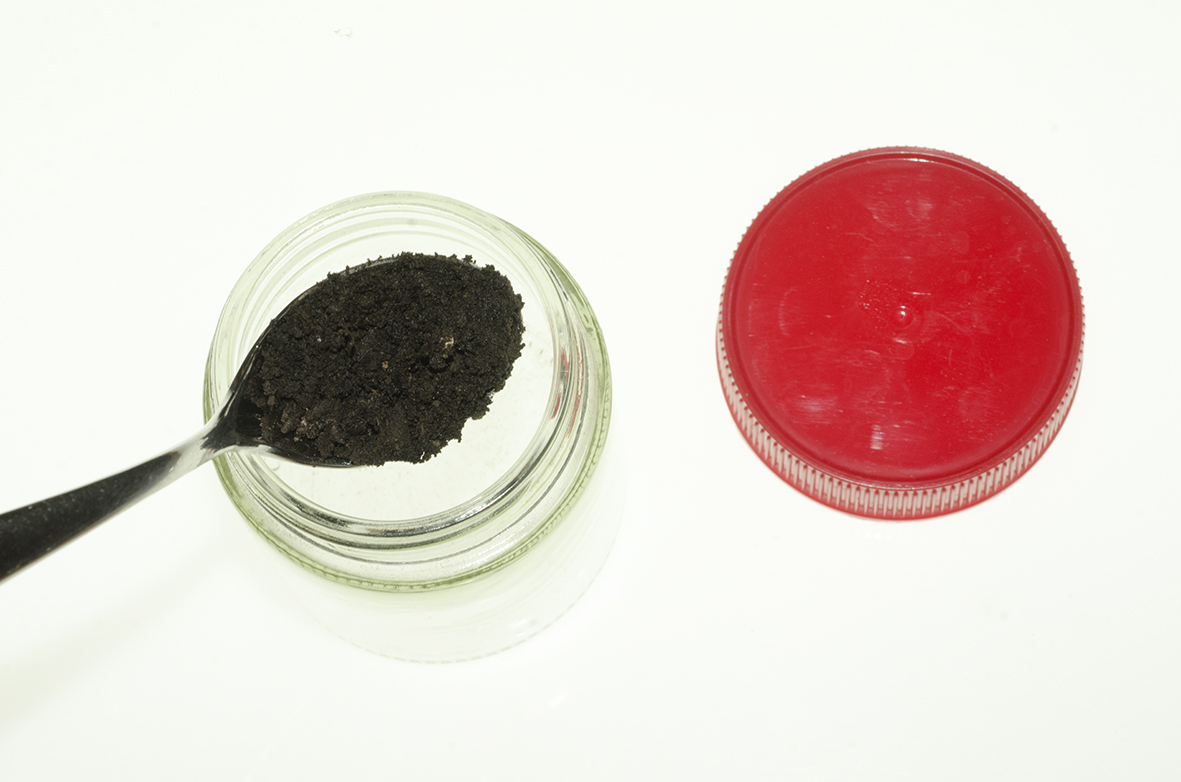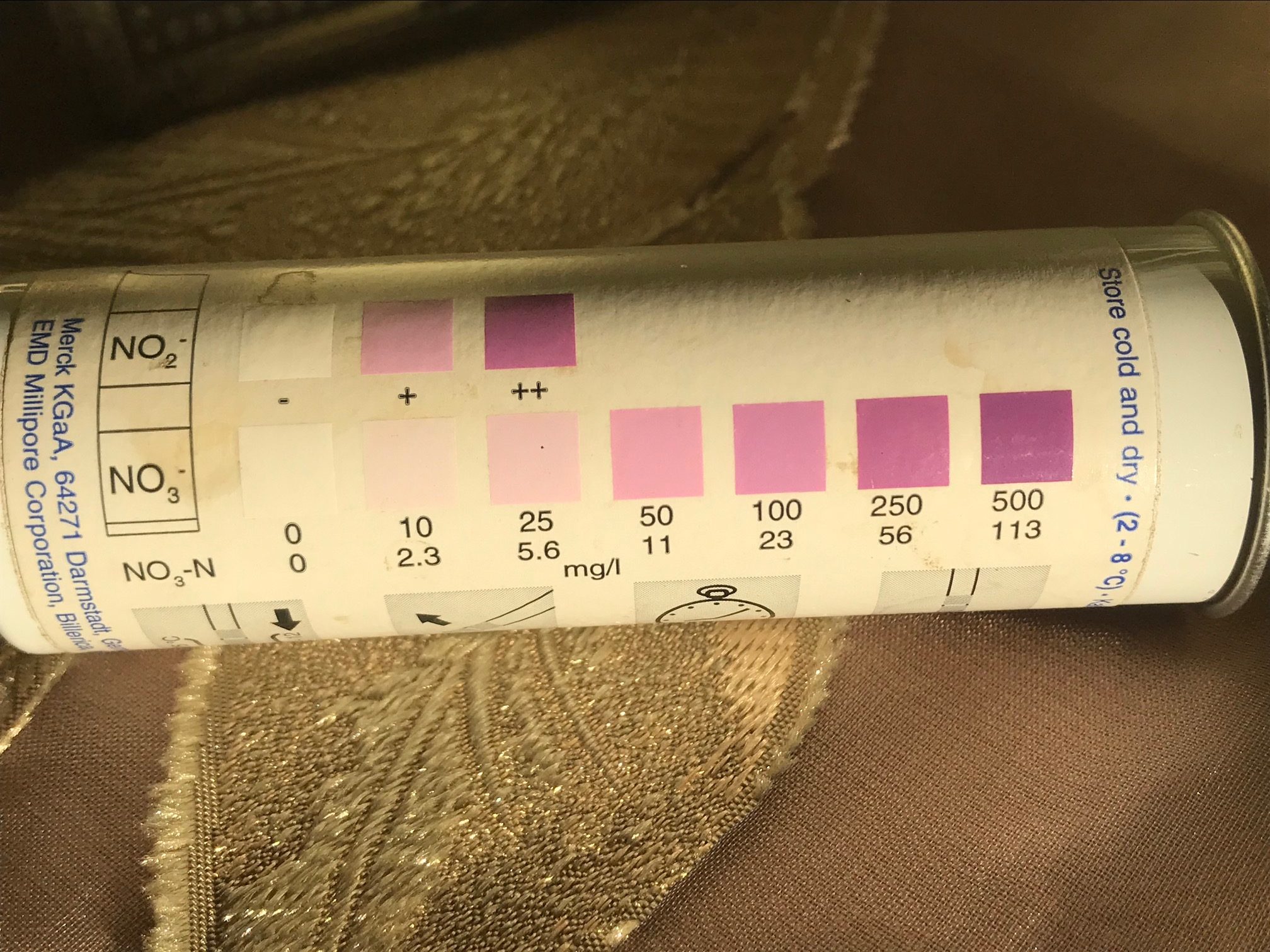Soil nitrates
Nitrogen is a vital plant nutrient. Typically, it is provided by artificial fertilisers in the form of nitrates. These are made from fossil fuels, mainly oil and gas, and their use contributes to climate change and pollution. A well-managed soil should have all the nitrogen that is needed, especially if weeds and the non-edible parts of crops are returned to the soil as mulches or as compost. We can analyse our soil for its nitrate content to guide us on whether we need to do some remediation of that nutrient in our plot. This needs checking because even if we add compost, it is unlikely to have more than 2–3% nitrogen content.
Test your soil
- Take a level teaspoonful of your soil (about 5 g) and shake it well in a small jam-jar-sized container with 50 ml of tap water.
- Leave for 5 minutes to let the soil settle.
- Dip one test strip into the solution for 2 seconds without motion. The end pad is for nitrate and the pad nearest the handle is for nitrite.
- Remove the strip and wait 1 minute then match to the colour chart provided to obtain a relative measurement of the concentration of these nutrients – the darker the pink, the more nitrates you have.
For vegetable crop production soil nitrate nitrogen should be 10 to 50 mg/kg. (Ignore the nitrite level)



Project 1
As for the Soil Sedimentation Test (section 5), it is interesting to compare different areas in your garden with different cultivation histories.
How Does Your Garden Grow Kit
This unique kit is based on research carried out in the Bio-Protection Research Centre at Lincoln University in association with the BHU Organics Trust and Kings Seeds. The kit will help you to discover a number of important things such as the acidity of your soil (slightly acid for potatoes, slightly alkaline for brassicas) and how to attract bees to your crops and ladybirds to eat your pests.
